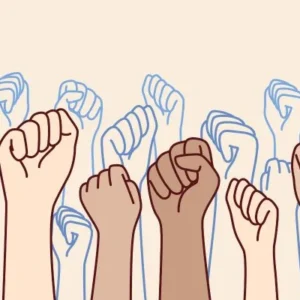Representatives of governments, workers, and employers from ten countries convened in Johannesburg to discuss how national climate commitments can promote decent work and social justice through a just transition. The international workshop, titled “Addressing just transition in nationally determined contributions (NDCs): Learning, leading and looking ahead,” was organized by the International Labour Organization (ILO) with support from the German Federal Ministry for Economic Cooperation and Development (BMZ) and the Swedish International Development Cooperation Agency (Sida). Delegates from countries including Azerbaijan, Brazil, Cambodia, Ivory Coast, Jamaica, Mexico, Morocco, Nigeria, the Philippines, and South Africa exchanged insights on integrating just transition principles into the upcoming generation of national climate plans (NDC 3.0) under the Paris Agreement.
The discussions emphasized that climate ambition and social justice are complementary, with progress on one dependent on coherent policies for the other. Ministries of labour and environment, along with employer and worker organizations, explored how social dialogue can help design inclusive policies. South Africa’s example demonstrated how transparent governance and stakeholder participation can strengthen procedural justice and public trust in the climate transition process. Participants agreed that integrating employment, social protection, and skills development into climate planning can create opportunities rather than vulnerabilities, as illustrated by Cambodia’s participatory NDC process and South Africa’s and Azerbaijan’s social dialogue initiatives.
Countries shared practical approaches to translating just transition concepts into action. Jamaica presented its Social Partnership Agreement as a model for promoting green jobs, while Nigeria showcased its Just Energy Transition and Implementation Guidelines linking gender equality and youth employment with climate goals. The Philippines highlighted its Green Jobs Act as a tool to encourage enterprise incentives and social partner engagement. However, participants also identified key challenges, such as inadequate financing, data gaps, and the exclusion of informal workers. The ILO’s technical assistance and regional peer learning were recognized as essential for addressing these obstacles.
The workshop also explored the need to move from planning to implementation. The NDC Partnership emphasized coordination across ministries and sectors, while the ILO presented policy guidance from its “Just Transition Guidelines,” marking their 10th anniversary. Discussions covered the role of social protection in cushioning workers and communities from climate impacts and the importance of supporting micro, small, and medium-sized enterprises (MSMEs) through green finance, training, and digital tools to drive job creation. An expert panel featuring representatives from Brazil, the IOE, ITUC, and UNEP highlighted the need to keep social justice and dialogue central to global climate negotiations ahead of COP 30 in Belém.
Delegations concluded by outlining concrete next steps, including strengthening national tripartite committees for social dialogue, embedding just transition indicators in NDC monitoring frameworks, and expanding capacity-building and public awareness initiatives. Brazil called for the establishment of a Global Fund for Just Transition and Climate Justice, while South Africa reaffirmed its commitment to “turning plans into jobs.” Morocco announced its updated NDC submission, linking mitigation and adaptation goals with equity and decent work. The event ended with a shared pledge to sustain cooperation and advance the global “Call to Action on Just Transition,” ensuring that the lessons from Johannesburg translate into real-world policies that create decent jobs, resilient economies, and a sustainable future for all.







